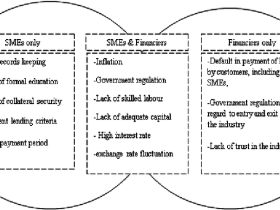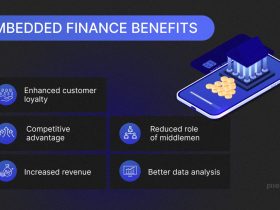Introduction
Regtech and suptech are two buzzwords that have been gaining traction in the financial industry in recent years. As the regulatory landscape becomes increasingly complex, businesses and regulatory bodies are turning to technology to simplify and streamline compliance processes. In this article, we will explore what regtech and suptech are, their benefits, and how they are transforming the world of regulatory compliance.
What is Regtech?
Regtech, short for regulatory technology, refers to the use of advanced technologies to facilitate compliance with complex regulatory requirements. It encompasses a wide range of solutions, including software applications, machine learning algorithms, and artificial intelligence (AI) systems. The goal of regtech is to automate manual and time-consuming compliance processes, reduce regulatory risks, and improve operational efficiency.
The Benefits of Regtech
Regtech offers numerous benefits for businesses and regulatory bodies alike. Here are some of the key advantages:
1. Enhanced Compliance Efficiency
Regtech solutions automate repetitive compliance tasks, such as data collection, analysis, and reporting. This eliminates the need for manual intervention, saving time and reducing the risk of human error. By streamlining compliance processes, regtech enables organizations to allocate resources more efficiently and focus on strategic initiatives.
2. Improved Risk Management
Regulatory non-compliance can result in hefty fines and reputational damage. Regtech solutions help businesses proactively identify and mitigate compliance risks by monitoring transactions, analyzing data patterns, and providing real-time alerts. This allows organizations to stay ahead of regulatory requirements and maintain a strong risk management framework.
3. Cost Savings
Traditional compliance processes can be expensive, requiring significant resources and manpower. Regtech solutions offer a cost-effective alternative by automating time-consuming tasks and minimizing the need for manual intervention. By reducing operational costs, businesses can allocate their resources to other critical areas of the organization.
4. Enhanced Data Security
Compliance involves handling sensitive customer data, making data security a top priority. Regtech solutions leverage advanced encryption and security protocols to ensure the confidentiality and integrity of data. Additionally, these solutions provide robust audit trails, enabling businesses to demonstrate compliance to regulatory bodies.
What is Suptech?
Suptech, short for supervisory technology, refers to the use of technology by regulatory authorities to enhance their supervisory and oversight capabilities. It enables regulatory bodies to efficiently collect, analyze, and interpret vast amounts of data to identify potential risks and enforce compliance.
Suptech offers several benefits to regulatory bodies and the overall financial ecosystem. Here are some key advantages:
The Benefits of Suptech
1. Improved Data Collection and Analysis
Suptech allows regulatory bodies to collect and analyze large volumes of data from various sources, including financial institutions, market data, and social media. This data-driven approach enables regulators to gain deep insights into market behavior, identify emerging risks, and make informed decisions.
2. Early Warning Systems
By leveraging advanced analytics and data modeling techniques, suptech enables regulatory bodies to develop early warning systems for potential systemic risks. These systems help identify vulnerabilities in the financial system and take preventive measures to mitigate the impact of future crises.
3. Streamlined Reporting and Supervision
Suptech solutions automate the reporting process for financial institutions, simplifying the compliance requirements. This streamlines the supervision process for regulatory authorities, allowing them to focus on higher-value activities such as risk assessment and policy formulation.
4. Collaborative Approach
Suptech encourages a collaborative approach between regulatory authorities and financial institutions. By sharing data and insights, regulators and financial institutions can collectively address compliance challenges and develop more effective regulatory frameworks.
Conclusion
Regtech and suptech are revolutionizing the world of regulatory compliance. These technologies offer significant benefits, including enhanced compliance efficiency, improved risk management, cost savings, and enhanced data security for businesses. Regulatory bodies also benefit from improved data collection and analysis, early warning systems, streamlined supervision, and collaborative approaches with financial institutions. As the regulatory landscape continues to evolve, regtech and suptech will play an increasingly important role in ensuring compliance and maintaining financial stability.








Leave a Reply